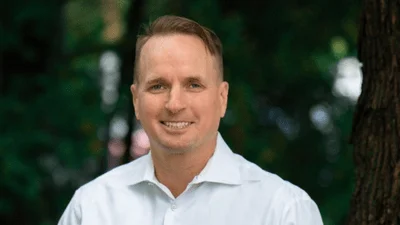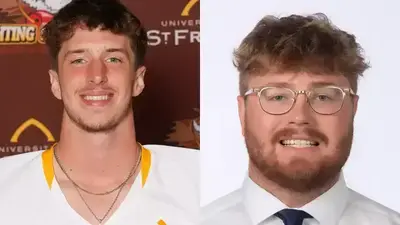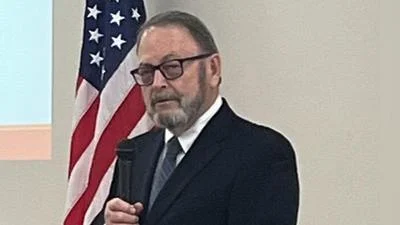Highland City Mayor Kevin B. Hemann | City of Highland
Highland City Mayor Kevin B. Hemann | City of Highland
City of Highland City Council met Aug. 19.
Here are the minutes provided by the council:
Mayor Hemann called the Regular Session to order at 6:30pm at the Highland Area Senior Center. Council members Sloan, Frey, Bellm, and Napper were present. Others in attendance were City Manager Conrad, City Attorneys Michael McGinley and Trent Carriger, Directors Cook, Gillespie, Ohren, and Rosen, Supervisor Pinsker, Officer Boggard, Coordinator Hubbard, Patrolman Flake, Treasurer Nicolaides, Deputy City Clerk Hediger, City Clerk Bellm, and 6 citizens.
MINUTES
Councilman Frey made a motion to approve the minutes of the August 5, 2024 Regular Session as attached. Motion seconded by Councilwoman Bellm. Roll Call Vote: Councilmembers Sloan, Frey, Bellm and Napper voted aye, none nay. Motion carried.
PUBLIC FORUM
Citizens’ Requests and Comments:
Highland Moose Lodge - Highland Moose Lodge Annual Chili Cook Off – Special Event Application – Kerry Fenton, Representative, Highland Moose Lodge #2479, was present to seek approval for their annual Chili Cook-Off to be held Sunday, October 20, 2024, on the Square. Councilwoman Bellm made a motion to approve the request of Highland Moose Lodge to host their annual chili cook-off and car cruise on October 20, 2024 as attached. Motion seconded by Councilman Frey. Roll Call Vote: Councilmembers Sloan, Frey, Bellm and Napper voted aye, none nay. Motion carried.
2024 Art in the Park – Special Event Application – Lynnette Schuepbach, Representative, requesting to hold their event on October 11-13, 2024 at Lindendale Park and to put up signage around town for directions on the Thursday before. Councilwoman Bellm made a motion to approve Art in the Park to be held October 11, 12 & 13, 2024 as requested. Motion seconded by Councilman Frey. Roll Call Vote: Councilmembers Sloan, Frey, Bellm and Napper voted aye, none nay. Motion carried.
Requests of Council:
No comments or requests.
Staff Reports:
City Manager Chris Conrad reported they are finishing the parking lot at the Korte Rec Center. Today, we got information that all the material has arrived for the Weinheimer Center roof, and they will be starting that this week. Councilwoman Sloan asked if the stripping of sidewalks and crosswalks will be done soon. City Manager Conrad reported crews did some of the areas near the schools, a few weeks ago; they will be doing the rest of the town over the next few weeks.
City Attorney Michael McGinley introduced Trent Carriger, the newest member of our municipal legal team. He is a 2016 HHS graduate. Happy to have him joining our team.
NEW BUSINESS
Approve Mayor’s Reappointment of Larry Munie to the Combined Planning & Zoning Board – Councilman Frey made a motion to approve the mayor’s reappointment of Larry Munie to the Combined Planning & Zoning Board, for a five-year term, to expire August 31, 2029 as attached. Motion seconded by Councilman Napper. Roll Call Vote: Councilmembers Sloan, Frey, Bellm and Napper voted aye, none nay. Motion carried.
Bill #24-84/RESOLUTION Waiving Customary Bidding Procedures and Authorizing The Purchase of a Ditch Witch SK1750 Stand-on Skid Steer from Charles Machine Works under the Sourcewell Program - Councilwoman Bellm made a motion to approve Bill #24-84/Resolution #24-08- 3124 waiving customary bidding procedures and authorizing the purchase of a Ditch Witch SK1750 Stand-on Skid Steer from Charles Machine Works under the Sourcewell Program, in the amount of $70,234.55, as attached. Motion seconded by Councilman Frey. Roll Call Vote: Councilmembers Sloan, Frey, Bellm and Napper voted aye, none nay. Motion carried.
Bill #24-85/RESOLUTION Authorizing and Directing Application to the Metro East Park and Recreation District (MEPRD) FY24 Community Planning Grant Program, for Assistance for the Purpose of Updating the Existing 2010 Trail Master Plan with an Updated Bicycle and Pedestrian Master Plan – Councilman Frey made a motion to approve Bill #24-85/Resolution #24-08-3125 authorizing and directing application to the Metro East Park and Recreation District (MEPRD) FY24 Community Planning Grant Program, for assistance for the purpose of updating the existing 2010 Trail Master Plan with an updated bicycle and pedestrian master plan as attached. Motion seconded by Councilwoman Bellm. City Manager Conrad noted, with regards to this item and the next, these two items that we want to update our trail master plan, because both IDOT and Metro East have some great grants coming up and we want to have our plans current for the application process. Roll Call Vote: Councilmembers Sloan, Frey, Bellm and Napper voted aye, none nay. Motion carried.
Bill #24-86/RESOLUTION Approving and Authorizing the City of Highland’s Application to the Agency for Community Transit (ACT) for the FY24 Community Action Grants Program, for Funding to Update the Existing 2010 Trail Master Plan – Councilwoman Bellm made a motion to approve Bill #24- 86/Resolution #24-08-3126 approving and authorizing the City of Highland’s application to the Agency for Community Transit (ACT) for the FY24 Community Action Grants Program, for funding to update the existing 2010 Trail Master Plan as attached. Motion seconded by Councilman Frey. City Manager Conrad explained they will actually provide a grant to apply toward the cost of updating the plan. That is what this application will be for.
Bill #24-87/RESOLUTION Approving Change Order Number One for the Korte Recreation Center Parking Lot Project – Councilman Frey made a motion to approve Bill #24-87/Resolution #24-08- 3127 approving Change Order Number One, in the amount of $64,859.50, for the Korte Recreation Center Parking Lot Project as attached. Motion seconded by Councilwoman Bellm. City Manager Conrad reported there were sections under the pavement where the soil had degraded. That soil needed to be dug out and several grades of rock were placed in to prevent the pavement from coming apart in those areas again. Roll Call Vote: Councilmembers Sloan, Frey, Bellm and Napper voted aye, none nay. Motion carried.
Bill #24-88/ORDINANCE Declaring Real Property of the City of Highland Surplus and Authorizing its Sale Pursuant to 65 ILCS 5/11-76-1 and 65 ILCS 5/11-76-2, Specifically 516 9th Street – Councilwoman Bellm made a motion to approve Bill #24-88/Ordinance #3346 declaring real property of
the City of Highland surplus and authorizing its sale pursuant to 65 ILCS 5/11-76-1 and 65 ILCS 5/11-76- 2, specifically 516 9th Street as attached. Motion seconded by Councilman Frey. City Manager Conrad reported this is property we obtained by condemnation, several years ago. It is located near the old police station. We attempted to sell by bid, which was unsuccessful; so we will try a different avenue. Roll Call Vote: Councilmembers Sloan, Frey, Bellm and Napper voted aye, none nay. Motion carried.
Discussion – Grocery Tax Implications - As was discussed at the last council meeting, on August 5, 2024 the Governor signed PA-103-0781, which will eliminate the 1% grocery tax statewide effective January 1, 2026. As part of the legislation, the State gave local governments, both Home Rule and Non Home Rule, the ability to institute the 1% tax locally by council action. We have included for your reference several articles, memorandums, and data published by the Illinois Municipal League, both about the tax and the potential implications to various communities. What is apparent from the data is the disparate impact this will have on various communities. For instance, West City with a population of 650 is anticipating a $311K impact to their revenues. Whereas Park Forest with a population of 21,000 is only anticipating a $100K impact. Mattoon and Marion are both roughly 15,000 in population, but Marion is expecting to lose about $1.7 million, where Mattoon is only anticipating losing about $475K. The impact is really just dependent upon whether your community is a regional shopping hub or not or whether your community has a grocery store option or not. For Highland, based on available information from the Illinois Department of Revenue, we anticipate the elimination of the grocery tax to impact our sales tax revenues $330-$350K per year. This is roughly 10% of our sales tax revenue, which is our largest unrestricted revenue source. This reduction is equal to almost two fiscal year’s growth in the sales tax, so we would be going back almost two budget years in our revenue. In the current budget year, our sales tax revenue is divided primarily between three departments: Public Safety - Police, Fire, and Building and Zoning gets 58.2% of our general sales tax; Streets, 25.9% ; and, Parks – Korte Rec Center, Parks and Programs, Pool and Cemetery, receiving 15.9%. This means, that in order to absorb the reduced revenue into our budget, we would be looking at potential budgets cuts in the following amounts based on a loss of $330,000 annually: Public Safety, $192,000.00; Streets, $86,000.00; and, Parks, $53,000.00.
Based on this information, I asked the directors to put together action plans for their respective departments that would address these revenue losses in the event the revenue is not replaced. City Manager Conrad expressed, I want to caveat these plans are based on current budget numbers, historic rates of both operational cost and revenue growth increases and the estimated impact of this revenue loss. Deviations from these historic numbers in either the growth of revenues or increases in costs or the impact would require additional actions. Those plans are as follows and are based upon the council not voting to continue the grocery tax.
Public Safety: The public safety department is the largest benefactor of sales tax, which provides the bulk of the funding for those departments. In viewing the known personnel changes that are in store for these departments we are suggesting the difference be made up with changes in personnel at the police department, a reallocation of funding for the Public Safety Director’s salary among the departments, and a few years of deficit spending until revenues can grow to make up the difference. The Police department was already anticipating some reductions in personnel costs due to known retirements and the associated savings with long time employees leaving versus new employees at a reduced cost, in addition to potentially reducing an administrative position either completely or down to part-time. The reallocation of the Public Safety Department’s salary makes sure that the “pain” is shared among the entire public safety division, so it will not just be the police department making the sacrifices. While these moves will not achieve the full amount of the cuts required, we believe we have adequate reserves to make up the difference with deficit spending for two to four years to allow time for our general sales tax to grow over time to until they are back to a level necessary to adequately fund the services. While this plan includes deficit spending, it allows us to maintain our current level of operational staffing and does not require any service cuts within the public safety division.
Streets: We don’t have a lot of room in the street department for cuts in personnel without having serious impacts on services. We currently have seven employees and a supervisor. Many jobs require multiple employees for safety. We propose a combination of deficit spending and freezing equipment purchases and replacements until revenues return to an adequate level. This will put an increased importance on maintenance and support to keep things operational, or we could look at equipment rentals in special circumstances to bridge the gap as well.
Parks: While minor changes in staffing and equipment can make large differences in Streets and Public safety. Parks is a harder area to make reductions without impacting programs/services. Playground equipment has gotten exponentially more expensive. Labor costs have increased dramatically with changes in the minimum wage laws; and, it is more difficult to build reserves in these services. We are proposing another reduction in full-time employee headcount. With the pending retirement next year of Director Rosen, spreading those duties among two existing employees (Director of Parks and Director of Recreation) and appointing two “Superintendents” under each of the new positions among existing employees. Each of the four would receive an increase in wages from the savings of Director Rosen’s salary, with the remainder going towards the proposed cuts. We are also proposing an increase in fees at the Rec Center, pool, certain programs and pavilion rentals of about 4-5%. None of these has seen increases in quite some time. We also propose the cemetery board increase their fees for perpetual care to cover 100% of the cost of the cemetery operations, which would bring the fees in line with other cemeteries in the region. Currently, the cemetery is subsidized by sales tax in the amount of about $20,000.00 annually in addition to their other revenue sources. We do not recommend deficit spending in the parks and rec department due to the difficulty in building reserves. We need reserves to cover potential grant opportunities when they arise or to cover unexpected emergency expenses at their many facilities. The proposed actions above both achieve the necessary cuts and put the department on a sustainable path financially long-term.
These scenarios are based on the information we have today and is considering a best-case scenario. Council is aware that since 2019, we have reduced our overall full-time employee headcount by seventeen employees. This means we are running very lean in our departments. Any changes in operational costs, revenue growth, or the estimated impact of the elimination of the tax would require additional administrative actions, which would undoubtedly require staffing and service reductions. The council will have three options: (1) We do nothing and allow the elimination to go into effect on January 1, 2026, and we implement the plans outlined above and any other corresponding cuts that may be required to meet the eventual impact. (2) We can choose to institute the tax locally by ordinance before October 1, 2025, which would mean no break in the collection of the tax come January 1, 2026. Or, (3) We could wait and see the impact and then take action if the impact is more severe than council is prepared to deal with. This would create a break in the collection, and this type of “follow on” tax would not be able to be collected until either July 1 or January 1 of the following year depending upon when the council would take action. Under the signed legislation, the tax is to be levied at 1%. So, unlike other taxing authority we have, this one does not appear to allow for quarter of percent increments. It appears to be all or nothing, which prevents a “split the baby-type” option. The legislature did provide both Home Rule and Non-Home Rule (NHR) communities to institute this tax by ordinance. They also changed the requirement for Non-Home Rule Sales taxes as well. Under previous law, NHR entities could only pass the NHR sales tax by referendum, and the expenses were limited to the expenses outlined in the referendum. For instance, our NHR sales tax was passed by the voters for the specific purpose of road, sidewalk, water and sewer improvements. Under the new law, communities that have not already passed the NHR sales tax, could do so by ordinance and use the funds for general purposes and obligations.
Based on these law changes, what are other communities doing? I have included in the packet of information a list provided by IML showing the estimated impact for various communities across the state. These discussions are going to be had on a case-by-case basis in each community based upon their estimated impact. Some communities have come out and already committed to passing the tax locally because the impact is too great. Others who are anticipating a minor impact are taking a wait and see approach. Some who have not already passed a NHR sales tax are considering letting the grocery tax expire but passing a lesser percentage general sales tax on all items. We do not have this option as we already have our own NHR sales tax through 2032. These decisions will be unique to each community based upon their circumstances.
Councilwoman Bellm asked when we have to decide. City Manager Conrad explained the council would need to pass an ordinance and have it postmarked to the Illinois Department of Revenue before October 2025. Councilman Frey expressed this just adds to our problems. If we act now, there would be no change to residents. Mayor Hemann pointed out this is not just a tax for residents, it is for anyone that comes in to Highland to shop. We just got back to doing larger infrastructure projects. We need to keep maintaining those items. We still have to provide services for our citizens. The governor did not take it away from the state; he took the revenue away from us. Councilman Frey stated I like to save citizens money; however, what they are going to lose in services will have even more of an impact on them. Councilwoman Bellm agreed we need to maintain services. We have made enough cuts already. We need to act now. Councilwoman Sloan agreed. City Manager Conrad pointed out that the departments most impacted by this are the same ones that the minimum wage increases have already severely impacted. Councilwoman Bellm asked if we decide to do this, when we want to do this. City Manager Conrad advised we have a draft ordinance already that IML has provided. We would just need our attorneys to review it and make any necessary changes for our purposes. Councilman Napper asked how much are we talking about, as far as the impact on citizens. City Manager Conrad responded this equates to $10 per $1,000 of grocery. Councilman Frey noted someone had estimated that 50-60% of the groceries sold here were for people outside of the city limits. Mayor Hemann quoted Governor Pritzker’s stance on municipalities imposing a tax: ‘If municipalities want to impose a grocery tax on their local residents, they should be able to go do that.’ How often is it that the governor takes a tax away that does not impact the state, but the municipalities? It is Illinois! Councilman Frey expressed, as to when to do this, I would like to get this done now, versus leaving this for a new council. I will take the heat for it. Councilwoman Bellm agreed. Councilwoman Sloan concurred. Councilman Napper stated he would like to get some public feedback on it first.
REPORTS
Accepting Expenditures Report #1272 for August 3, 2024 through August 16, 2024 – Councilman Frey made a motion to accepting Expenditures Report #1272 for August 3, 2024 through August 16, 2024 as attached. Motion seconded by Councilwoman Bellm. Roll Call Vote: Councilmembers Sloan, Frey, Bellm and Napper voted aye, none nay. Motion carried.
Councilwoman Bellm made a motion to adjourn. Motion seconded by Councilman Napper. Roll Call Vote: Councilmembers Sloan, Frey, Bellm and Napper voted aye, none nay. Motion carried. Meeting adjourned at 7:07pm.
https://www.highlandil.gov/City%20Council/Minutes/2024/08-19-2024.pdf






 Alerts Sign-up
Alerts Sign-up